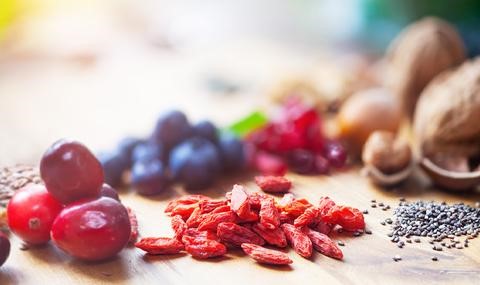How to take care of Heart in Winter
Who doesn’t like to enjoy the weather of foggy mornings and chilly evenings; endless cups of chai or coffee and approaching holidays during winter? But as temperature starts to fall, the risk of heart problems begins to climb.
Avoiding winter heart problems can lead to sever heart related problems. It may include heart attack, respiratory system failure or death.
In this article, we will learn how to keep your heart healthy naturally during cold winters.
How does cold winter affect the healthy heart?
Well, during the winter season, one of the major causes of cardiovascular disease is the slump in the supply of oxygen-rich blood to the heart. So, to maintain good heart health, you need to take extra care of your heart every day.
Followings are some of the common troubles people face during harsh winter.
Effect on Heart Rate
Drop in temperature in the winter, has direct relation to the heart rate. Arteries and blood vessels are narrowed, due to low temperatures. This causes restriction in normal blood flow. It becomes tough for the heart to circulate blood through the constricted blood vessels. As a result, the heart rate increase.
A sudden increase or occurrence of heart rate may be a sign of an underlined heart related disease. In winters, increased heart rate is common in elderly people. The heart rate of an adult person usually ranges from 60 to 100 beats. A normal heart rate depends on many factors, so don't panic if your heart rate fluctuates above normal. In case of dizziness, headache, chest pain, blurred vision, contact your doctor immediately.
Chest pain during winters
During cold weather, one can experience discomfort in the chest. This may be because of the swelling between the joint space. If there is increased chest pain due to increase in workload, it is an indication of associated heart problem. Other related issues are nausea, shortness of breath, vomiting. If these symptoms are there, one should seek medical attention.
Shortness of breath in winter
In winter, the oxygen density in atmosphere is naturally on the lower side. That is one of the reasons for shortness of breath, as the oxygen demand of heart increases. Also, due to Vasoconstriction during cold weather, the demand of oxygen is not met.
Ways to improve your heart health
-
Add more natural antioxidants to your diet

As your body uses the oxygen it needs, it creates harmful chemicals called free radicals, which are chemicals that can attack your body’s cells. And because they’ve been linked to a number of serious health conditions, including cancer, heart disease, Alzheimer’s and diabetes, the effects of unchecked free radicals can be disastrous.
Health experts suggest that eating antioxidant-rich food during the winter season can help you maintain a healthy heart and avoid serious heart health issues. There are three major antioxidant vitamins – beta-carotene, vitamin C and vitamin E – and these can be found in a variety of foods, especially fruits and vegetables. So getting enough antioxidants is really a matter of good nutrition.
Fresh vegetables and fruits like carrots, spinach, beetroot, spinach, grapes, pomegranate and tomatoes are excellent sources of natural antioxidants. These can neutralize free radicals before they can do any damage. They can also bolster your cell’s defenses and enhance your immune system to reduce your risk of disease.
-
Antioxidant-rich supplements for daily health

To help you get enough antioxidants, why not take a daily multivitamin supplement? Look for a high-quality product that contains antioxidant ingredients that augment the protection you get from your diet.
Swisse men’s and women’s natural multivitamins are specially formulated to support balanced nutrition and enhance your heart health with a powerful ingredient – Tomato Lycopene. Similarly, other premium products such as fish oil, magnesium and co-enzyme q10 contain premium quality formulations to support a healthy cardiovascular system, general health and wellbeing.
-
Daily Indoor Workout

As the holiday season, festivities and cold weather kick-start during winter, it might be a little challenging for you to find the motivation to get to the gym or step out for exercises every day. But practicing yoga daily or any form of physical activity indoor (if an outdoor workout is not possible) will help you stay healthy and boost your heart and immune health during winter.
-
Say no to excessive smoking and drinking alcohol

It is true that alcohol increases warm blood flow in the skin, perhaps that might be one of the reasons people reach for booze when it’s cold outside to keep themselves toasty. But excessive drinking can warm up your body more than required, which could be a problem during the winter season. Smoking should be strictly avoided because it is one of the key contributors to heart failures and cardiovascular disease.
-
Mega benefits of oMEGA-3

EPA (eicosapentaenoic acid) and DHA (docosahexaenoic acid) are the two vital Omega-3 fatty acids that are abundant in fish oil and in some plant seeds and nuts. They play an important role in many body functions and structures, including supporting brain, eye, nervous system, joint and heart health. The best dietary source of omega-3 is oily fish such as sardines, herrings or hilsas, salmon or mackerel. Also, some foods such as eggs, bread or margarine may be fortified with omega-3 fatty acids EPA and DHA.
Omega-3 fatty acids have numerous health benefits, from reducing joint pain and stiffness to maintaining a healthy heart to enhancing your skin’s natural glow, omega-3 acids can boost your health and wellbeing. Also, many studies have shown that regular intake of omega-3 fatty acids help lower levels of depression, which people might commonly experience during the shorter days of winter. Furthermore, omega-3 helps you maintain your mental balance and general wellbeing every day.
So be healthy and beautiful this winter season with our wide range of heart health and skincare products made from nature’s finest ingredients.
SHOP NOW
